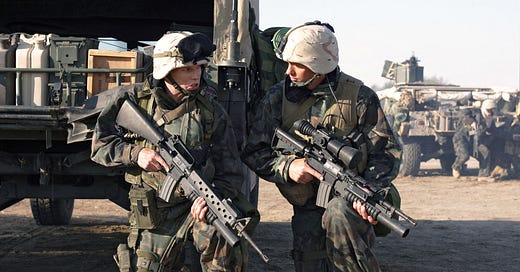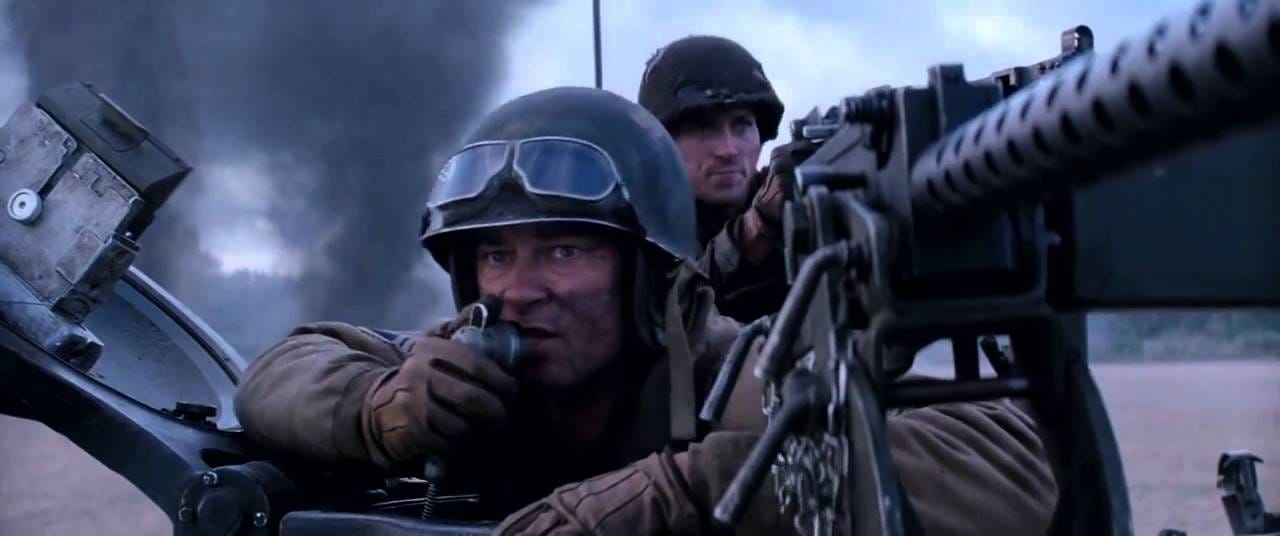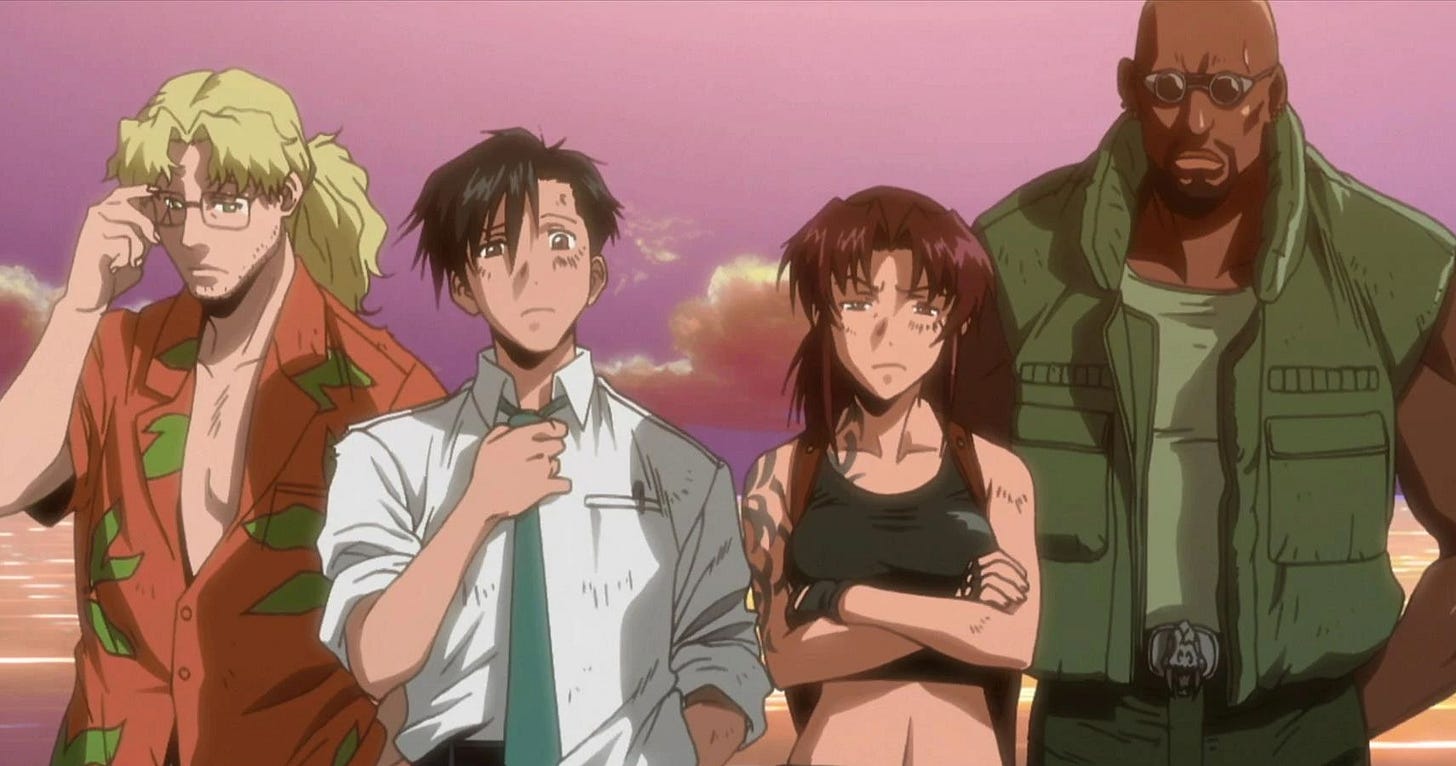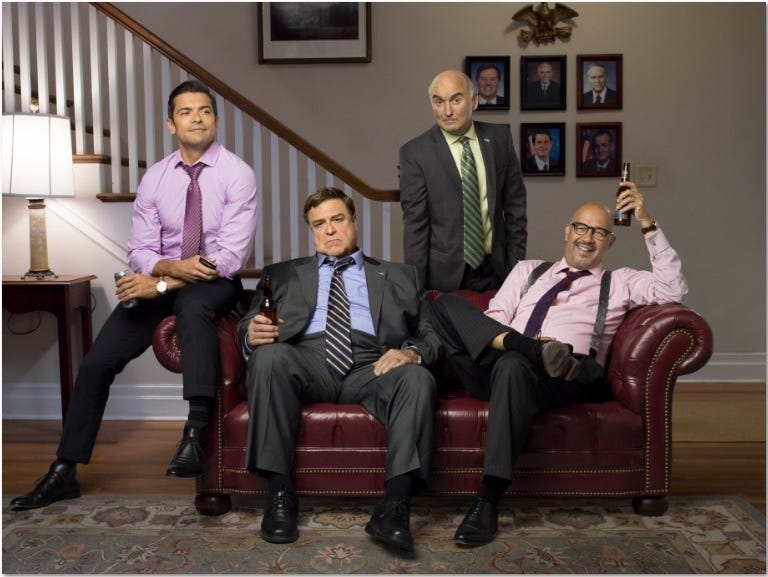Instead of writing about AI, World War III, or China strategy, I get the urge to write a fun article. Like Michael Bolton, I consider myself to be a major cinephile. I also happen to be a strong believer in visual media as an education tool; not everything in foreign policy need be a dry white paper or the millionth (useless) treatise on grand strategy. So as 2023 comes to a close, let’s have a little fun and start a (flame) war. Whether you’re on block leave from active service, winter break from college, or stuck on the Pentagon watch floor, here’s Top 50 must-watch natsec films and television shows, broken down by era and topic. Enjoy! And if I missed something, lemme know!
World War II
You’ll notice this part of the list is quite short, and that’s because the most popular WWII content (Band of Brothers, Saving Private Ryan, etc) is stuff you’ve probably already watched a thousand times. They also don’t have much in the way to offer in terms of education here. And, not to get on my soapbox, but I’m tired of seeing them in PME and articles about leadership. Broaden your horizons, folks. There was a lot more to the war, certainly stuff more relevant to the present Pacific fight, than Normandy!
Twelve O’ Clock High (1949): One of the most accurate portrayals of the European bombing campaign, with a heavy focus on the challenges of command and the gritty realism of the war as opposed to many of its predecessors.
Tora! Tora! Tora! (1970): Screw Michael Bay, this is the Pearl Harbor film to watch. With a little more nuance than a Bay film, and about 30 years closer to the actual events, Tora! Tora! Tora! delivers a stunning display of action and drama as the Pacific War begins.
The Thin Red Line (1998): One of two stunning Jim Cavaziel performances on this list, The Thin Red Line does for the Battle of Guadalcanal and the horrors of the Pacific theater what HBO’s The Pacific tried and fail to do because they sold it as “Band of Brothers but Tropical.” You should still watch The Pacific, though.
Fury (2014): Anyone who’s ever lived the mechanized life loves Fury. When I was in an ABCT, everyone wanted to be like Brad Pitt in Fury. It’s a stressful, dark, and a fairly accurate look at the mounted life and maneuver. I can’t think of a better film about armored warfare.
The Cold War
The modern security apparatus was born of the Cold War, and with 40+ years of history to cover, it shouldn’t be surprising this is the longest section in my Top 50.
The Death of Stalin (2017): An outstanding satire of Soviet political dynamics and the terror himself, The Death of Stalin delivers on both laughs and the grimly sobering realities of Soviet leadership under Stalin, with more than a few warnings about our present day politics and cults of personality.
Dr. Strangelove (1962): No movie more embodies the early Cold War attitudes and insanities that captured American foreign policy than Dr. Strangelove. Experience the world on the brink of nuclear war as the Soviets and Americans try to avert catastrophe amidst the suspicions of the fog of war. It’s a close call between Dr Strangelove and Generation Kill on this list as to which is more quotable. Just remember: no fighting in the war room!
Thirteen Days (2000): You can’t talk about the Cold War without talking about The Cuban Missile Crisis. Thirteen Days gets a lot right, and a lot wrong, about those two weeks in October 1963 when the world held its breath, but it’s certainly the best film on the subject. Enjoy the tense atmosphere as The Doves, Owls, and Hawks battle it out for the fate of the world.
Charlie Wilson’s War (2007): “These things happened. They were glorious and they changed the world... and then we fucked up the endgame.” Tom Hanks delivers a masterful performance as the troubled but larger than life Congressman Charlie Wilson, alongside the late, great Philip Seymour Hoffman as they take the fight to the Soviets in the 1980s armed with Stingers, cocaine, and Mike Vickers. If you’re not yet convinced, try this clip of Hoffman at his very best in the film.
The Hunt for Red October (1990): “Let them sing!” The novel turned film that made Tom Clancy famous, Red October features Alec Baldwin’s Jack Ryan as a CIA analyst who should’ve just written a memo. The movie is simultaneously globe-spanning and claustrophobic as the world turns on the brink of nuclear war as Ryan races to uncover the truth about Sean Connery’s Captain Ramius and his nuclear submarine, the Red October.
By Dawn’s Early Light (1990): The President’s presumed dead, the armageddon planes are in the air, and Americans and Soviets are dying by the bushel in fiery, radioactive blazes. How would you handle the stress during a nuclear crisis, and how sure can we be that the right people will be in charge when they need to be? By Dawn’s Early Light is the best portrayal (and extraordinarily accurate for the period) of nuclear command and control.
Atomic Blonde (2017): A colorful, punchy, fantastically shot story of double agents in Berlin amidst the fall of the wall. Atomic Blonde features some of the best fight scenes and sequences of the espionage genre, all with Charlize Theron stealing the show as the lead femme fatale breaking stereotypes and bones everywhere she goes.
Red Dawn (1984): “Wolverines!” No, this is not the shitty remake that the CCP bought off with Josh Peck and a Hemsworth. The original Red Dawn takes place in 1980s Colorado, just as World War III kicks off and Soviet paratroopers occupy our heroes’ small town. The All-American teenagers are forced to lead a resistance as the war grinds to a standstill.
Tinker, Tailor, Soldier, Spy (2011): Poor George Smiley, more spy than James Bond ever was with none of the glamour. That’s it, that’s all you need to know.
The Americans (2013-2018): I couldn’t write a cold war media list without including one of the best television shows about marriage of all time. The Americans takes place in and around DC during the 1980s, as Phil and Elizabeth Jennings conduct illegal operations behind enemy lines on behalf of Moscow…err I mean run their travel agency business and badly raise 1.5 children in Falls Church, VA. Come for the tradecraft, stay for the engrossing storyline.
WarGames (1983): The depths of the Cold War, the 1980s AI scare, and the rise of the hacker. If you’re easily anxious about the fate of the world, how about a nice game of chess instead?
Vietnam and the Developing World
Let’s have a little more introspection, please.
Battle of Algiers (1966): The brutal depiction of the Algerian War of Independence against France shown in newsreel style footage of combat actions of both the French and rebel groups.
Platoon (1986): Oliver Stone’s masterpiece on the ethical struggles of combat, the Vietnam War, and leadership. With an all-star cast, it’s worth noting that Stone (a Vietnam vet) put the cast through a quasi-basic training in order to enhance the realism.
M*A*S*H (1972-1983): This heartfelt dramady about medics in the Korean War sure does have a lot of Vietnam allegories, I wonder what that’s about…
Apocalypse Now (1979): Francis Ford Coppola’s adaptation of Joseph Conrad’s Heart of Darkness. It is perhaps my favorite war film of all time, and if you’ve read my novel Ex Supra, you’ll surely notice more than a few nods to this Vietnam War epic. What can I say? I love the smell of napalm in the morning.
Argo (2012): Fuck yourself. Sorry, gotta watch the film to get the joke. Based upon the CIA’s last ditch covert operation to evacuate their own out of Tehran during 1979 Revolution, Argo blends the Hollywood magic of the 1970s with the very real relationship CIA has with Hollywood, and how it all came together to save a few lives.
Heartbreak Ridge (1986): It’s a cheesy Clint Eastwood flick that he filmed while he was mayor of Carmel, CA. It’s also a beloved film about Gunny Highway, a rough around the edges Recon Marine who has to whip a platoon of Marines into shape during the post-Vietnam era when morale and discipline were low and crime was high in the Armed Forces. Most importantly, the movie reaches its climax during the Invasion of Grenada in 1983, where a scene involving a collect-call fire mission borrowed from a real-life incident during the conflict that was later used as an example of the need for the Goldwater-Nichols reforms.
Post-Cold War Interlude
The 90s were a weird time. Forget your nostalgia. The national security community didn’t know what to do with itself, and the foray of misadventures and general sense of being adrift without the Soviets didn’t help.
Black Hawk Down (2001): “Single shot to the engine block.” Based upon the 1993 Battle of Mogadishu, Black Hawk Down was probably the best recruiting tool the Army had for a decade+. I remember watching it during sleepovers in middle school and reenacting scenes with friends. It’s still the most accurate portrayal of life as a grunt during that period, even if the movie compressed and cut out *a lot* in order to make the story fit into a single film. The soundtrack alone is worth the watch.
Behind Enemy Lines (2001): Naval aviator gets shot down on a reconnaissance mission behind enemy lines, uncovers evidence of ethnic cleansing in the process. Has to escape with the film to tell the world. One of the few decent films to cover the 90s Balkan conflicts.
Three Kings (1999): A heist-comedy featuring George Clooney, Mark Wahlberg, and Ice Cube on a gold heist during the First Gulf War, Three Kings best emulates the sense of emptiness that many veterans of the war felt, because of how quick and one-sided the ground war was. The Gulf War advanced the (untrue) idea that modern conflict was moving faster than the man on the ground; so if you can’t fight, why not make money? The film deals a lot with the absurdity of the conflict and American policy in the Middle East writ large, while still working as a great heist movie.
The Siege (1998): I think I first watched this when I was 8 and that may have been a mistake. Pre-9/11, The Siege features a New York City under siege from both a terror threat and an overzealous military while dealing with the moral conflicts of torture, detainment, racial profiling, and policing vs military actions against terrorism.
Clear and Present Danger (1994): Before Clancy’s writings went off the rails with the end of the Cold War, he wrote (and then turned into a film) one of the best modern takes on how the national security state can abuse its power even when it is well-meaning. Stealing scenes from the Iran-Contra scandal and Pablo Escobar debacle, Clear and Present Danger follows Harrison Ford’s “boy scout” Jack Ryan as the President and his cronies wages a private war against drug cartels in Columbia.
Black Lagoon (2006): There is no better metaphor for how weird the inter-Cold War period was than an anime about psychotic, amoral mercenaries roaming around the South China Sea. Fun fact: psychotic, amoral mercenaries in the SCS was basically the justification for procuring the Littoral Combat Ship and wasting a decade+ of shipbuilding capacity. Also, the title theme kicks ass.
The Security State
Paranoia, incompetence, and a little humor never hurt anyone. We’re all just bad code, anyway.
Person of Interest (2011-2016): How to describe a *network* show that so perfectly blended storylines covering rival ASIs, privacy rights, post-9/11 paranoia, covert action, and even Mafia wars with a perfectly cast group of lonely, traumatized, and violent heroes lost to society. Never forget: everyone is relevant to someone. From start to finish, this is my favorite TV show of all time. Deadspin broke it down best.
Pentagon Wars (1998): Popular opinion goes back and forth about this film, either it’s the most accurate portrayal of Pentagon and budget absurdities or it’s just Hollywood playing stereotypes of the military-industrial complex without any concern for nuance. The film centers on the decades-long development of the Bradley Fighting Vehicle, having rode a Bradley and fought with its absurd design and features many times, I can say that while still better than many of its global counterparts, the process that delivered it was so flawed (and still evident if you ever step in one) that it is very much worthy of satire. In fact, when I first got to my first unit, I remember being told by just about everyone “ever seen Pentagon Wars? Well, we’re living it!”
Eureka (2006-2012): Imagine 3,000 of the world’s smartest scientists living in one town in Oregon, working for the Department of Defense…what could go wrong? This dramady about a US Marshall turned town sheriff of Eureka is a great time for both the imagination and a few laughs, but most importantly for us, it forces you to constantly debate the push-pull of scientific idealism vs the tough, often destructive results of idealistic scientific research.
Three Days of the Condor (1975): CIA academic returns from lunch to find all his colleagues dead, he’s now caught in a grand conspiracy. Congratulations on the paranoia. No movie better captures the bleak paranoia of the Watergate era than Three Days of the Condor. It’s actually so good that it helped inspire a lot of Captain America: Winter Soldier.
Oppenheimer (2023): This masterpiece of Christopher Nolan’s could have fit in a few categories here, but it’s hard to talk about development of The Bomb and what it did to humanity without framing it in the context of the evolving, paranoid security apparatus of the 1940s and 50s.
GWOT
The longest running of America’s wars and the one that transformed the foreign policy, domestic politics, and media landscape from start to finish.
The Outpost (2020): The gritty, heroic story of a single COP’s stand at the bottom of a valley against a Taliban attack. Few movies do a better job of demonstrating just how idiotic many of the tactics and strategies employed during the war were for those who had to fight it.
Enlisted (2014): A sitcom about a platoon of misfit soldiers left behind from deployment. It was way too short, but became a cult favorite of veterans everywhere.
The Unit (2006-2009): The AllState guy plays Snake Doc, a Delta Force sergeant major leading a team of the world’s best operators that is *loosely* based upon the book Delta Force. The combat stories are fun but the portrayal of stress and the day-to-day on the homefront in an age of constant deployments is equally important if you haven’t worn the uniform. This one also has a banger of an opening theme.
Generation Kill (2008): “War is the motherfuckin’ answer.” The most accurate, honest portrayal of life in a line unit in modern history. From faulty fire missions to narcissistic leadership, Generation Kill takes us on a journey through the 2003 Invasion of Iraq with a Marine Recon Battalion. Two of the Marines from the unit played characters in the show, and a third (LT Fick) is now the State Department’s cyber ambassador. Forget Band of Brothers, this is what you should be using for PME. The book is even better.
Zero Dark Thirty (2012): When someone first suggested this for the list, I thought “everyone lived this, we don’t need it on the list” and then I remembered what year it is. Sigh. Anyway, Zero Dark Thirty does a fantastic job of telling the tale of the hunt for Bin Laden, but specifically, does a fantastic job (in one scene) of reminding everyone in national security that “there is no one else” that will save the day when you fail. It’s just you.
Restrepo (2010): One of the few documentaries on the list. Restrepo documents a single Afghanistan deployment for US soldiers. It’s real, it’s honest, and it should’ve left folks with even more questions than it generated upon release about the war itself.
The Wire (2002-2008): What does the greatest crime drama in history have to do with the Global War on Terror? Well, everything. You can’t understand the GWOT without seeing American society during that time, and vice versa. You’re failing at your job in national security if you don’t know what’s going on around you. It’s as simple as that.
American Politics
National security cinema starts at home…or something.
VEEP (2012-2019): The perfect satire and portrayal of the American executive branch and modern politics. No notes.
Alpha House (2013-2014): The legislative, if less famous, companion to VEEP. A perfect satire of Congress, 2010s politics, and the lives of Hill staff. I laughed harder at Alpha House than I did Veep.
The Man Who Shot Liberty Valence (1962): You can’t talk about American politics without understanding American Westerns. I hate John Wayne, and this is a John Wayne movie. John Wayne embodies everything about historical narrative rather than reality of American history. And that is why this film is perfect, it’s all about the reality of American history and the West vs the fictional narratives that drive us. And oh so perfect for John Wayne to play opposite Jimmy Stewart, his real-life foil.
Space and Science Fiction
It’s not just about what happened, it’s about what might happen, and how we plan for the future.
The Twilight Zone (1959-1964): Not that horrible remake CBS tried last decade or it’s edgy, pseudo-intellectual rip-off: Black Mirror. Rod Serling’s original is packed with allegories and subterfuge aimed at society, culture, fascism, and American government. It’s no secret that my favorite episode inspired a fan-favorite chapter of Ex Supra.
Stargate SG-1 (1997-2007): The only tb show to rightfully claim that every episode got a thumbs up from the US Air Force, including multiple appearances by multiple USAF chiefs of staff throughout its run. It’s an excellent portrayal of small unit dynamics, leadership, military humor, the challenges of diplomacy, and just an all around good time.
The Expanse (2015-2022): I’m hardly the first to say that the first few seasons of The Expanse perfectly recreate (in future space fiction) the dynamics of the Cold War for both superpowers and the developing world from deterrence to resource exploitation. And the physics are pretty damn accurate too.
Battlestar Galactica (2004-2009): BSG had the benefit and cost of rising to the top of the charts just before nerd culture went from mockery to popularity. It stood out, it was a space navy drama about the last of humanity fighting against the robotic Cylons that featured complex storylines, politics, WWII footage-inspired ship and spacecraft combat, and commentary on the meaning of life itself. At least one storyline from BSG inspired parts of Ghost Fleet, and many of us fell in love with the characters themselves that are, once again, much better portrayals of the challenges of leadership. So say we all.
Starship Troopers (1997): Despite the very wrong opinions of other people, Starship Troopers is an outstanding satire of fascism and blind militancy. it’s hilarious, earnest, and still a damn good sci-fi war film on its own. Much better than the original book from the 1950s. Would you like to know more?
From the Opposition
To round out, I couldn’t write a list without sharing a few of the best films from our rivals that help explain them.
They Fought for their Country (1975): A Soviet epic about the retreat across the Russian plains during Operation Barbarossa. What’s notable about this film is not just the heavy use of Red Army extras and equipment, but the rare honest portrayal of how rough conditions were for the soldiers fighting the Nazis, often at the hands of inept Soviet leadership.
9th Company (2005): This film tells the story of a Soviet unit as it trains up and deploys to Afghanistan. Not much else is required to know going in.
Wolf Warrior 2 (2017): The Wolf Warrior series of over-the-top CCP propaganda films is what gave the name and attitude to the “Wolf Warrior” diplomats that love to appear in Western media with a certain swagger and promptly shoot whatever CCP good will initiative exists in the foot, repeatedly.
If you enjoyed this article but are looking for some reading material instead, check out my novel, EX SUPRA. It’s the story about the war after the next war. From the first combat jump on Mars to the climate change-ravaged jungles of Southeast Asia, EX SUPRA blends the bleeding edge of technology and the bloody reality of combat. In EX SUPRA, the super soldiers are only as strong as their own wills, reality is malleable, and hope only arrives with hellfire. Follow John Petrov, a refugee turned CIA paramilitary officer, Captain Jennifer Shaw, a Green Beret consumed by bloodlust, and many more, as they face off against Chinese warbots, Russian assassins, and their own demons in the war for the future of humanity.













